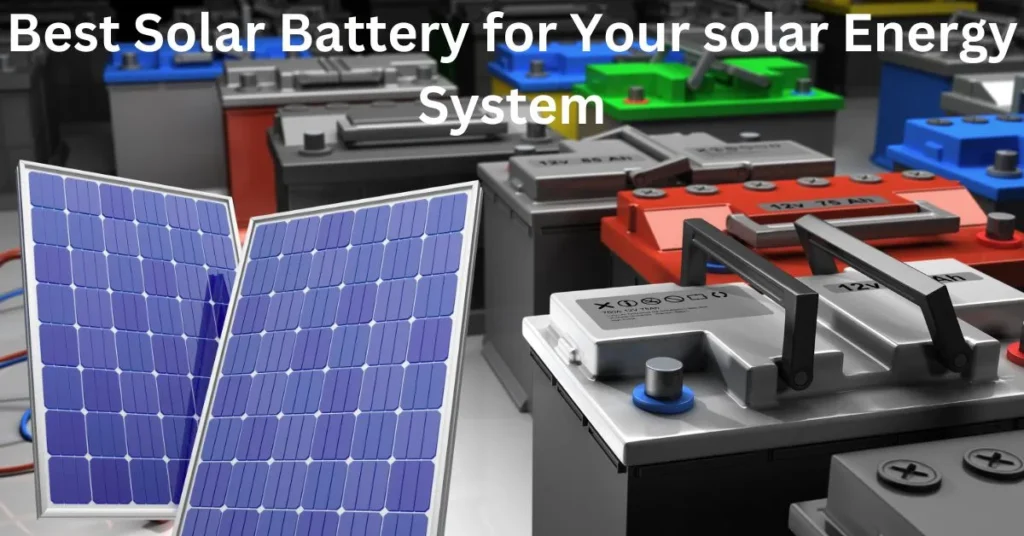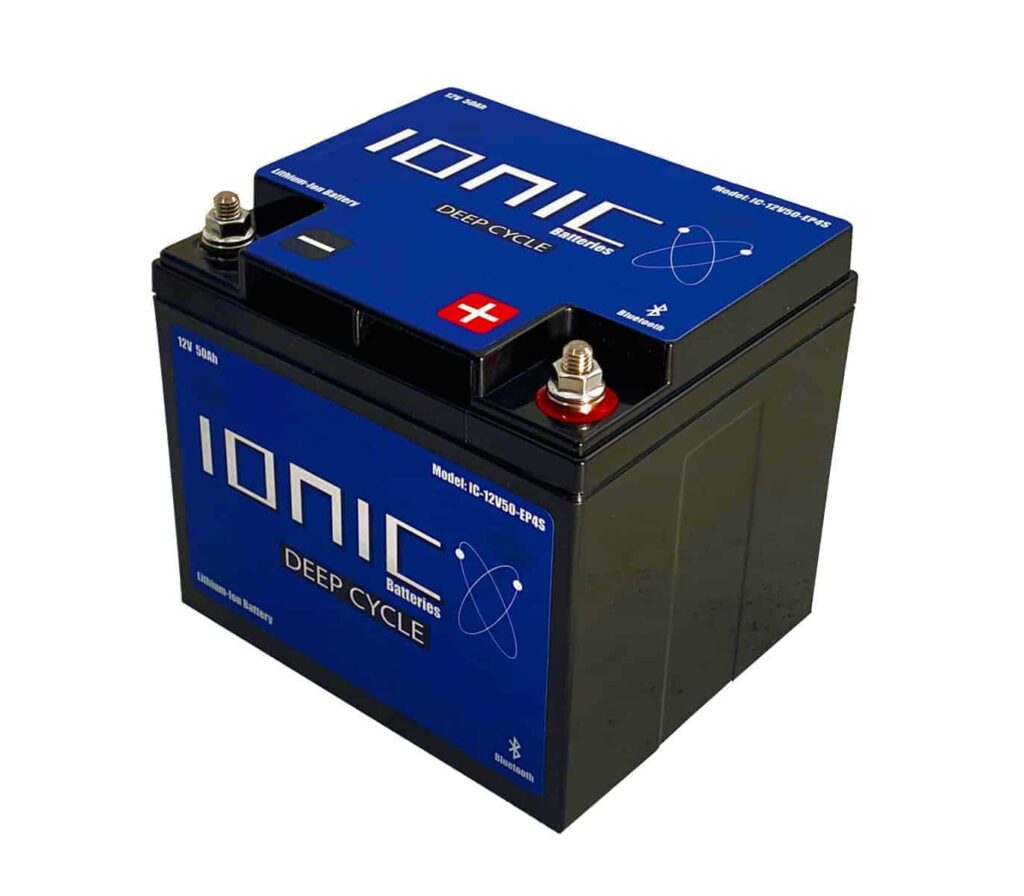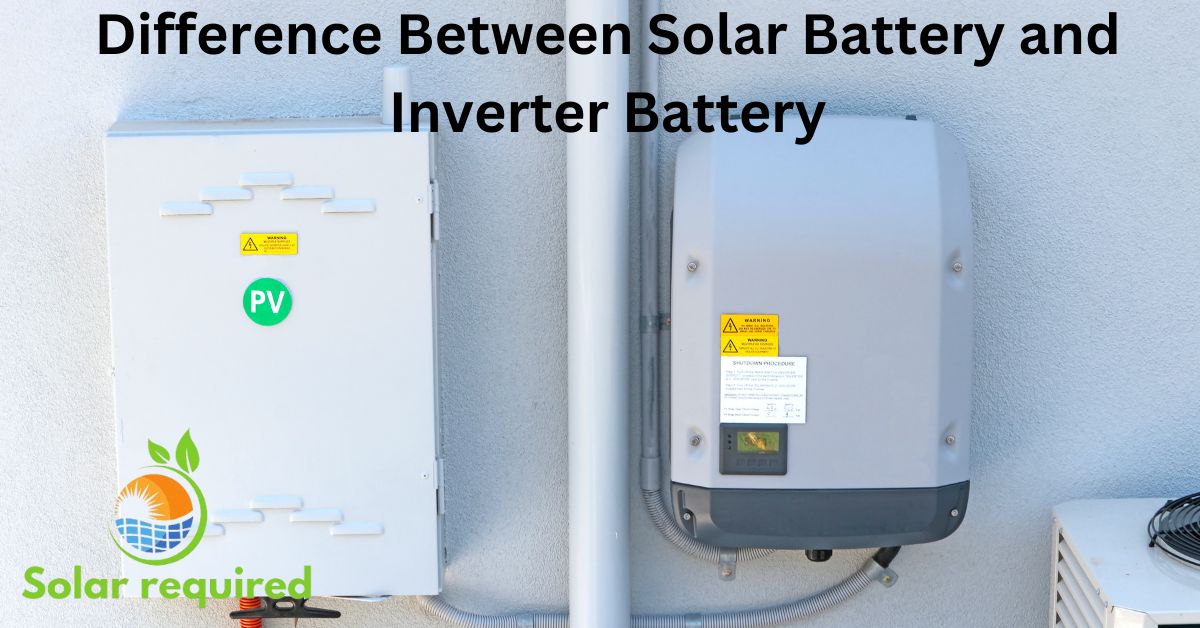I know how important it is to pick the right battery for your solar power system. The lead-acid and lithium-ion batteries are two major types of batteries. Both are utilized by solar energy storage systems. Both have their advantages as well as disadvantages.
There is nothing else but your requirements that can enable you to make your selection. So, let us now examine the good and bad of both types of batteries in this post. You can then make the best choice for your home’s solar panel installation.
This section discusses Lead Acid Batteries.
Lead-acid batteries have long been a mainstay in energy storage. Some devices, such as solar panels, cannot operate without them. These batteries are strong, reliable, and cheap.
Advantages of Lead-Acid Batteries for Solar Panels
When compared with lithium-ion accumulators lead-acid ones are usually cheaper. Therefore, it will suit owners of solar panels who cannot spend much money on it. Lead acid batteries have a known history and reputation for being good performers. That’s why they are popular as off-grid energy backups.
As for lead acid batteries they need little maintenance. You just need to check water levels and clean them now and then. Any average homeowner can do these tasks without trouble.

Cons of Lead Acid Batteries for Solar Panels
1. Minimal Lifespan:
Lead acid batteries have a shorter lifespan than lithium-ion batteries. They typically last 3 to 5 years with proper maintenance.
2. Heaviness and Bulkiness:
In comparison to lithium-ion batteries lead-acid batteries are usually heavy and bulky making it difficult to fix them.
3. Environmental Issues:
Improper disposal of lead acid battery elements, such as sulfuric acid and lead can harm the environment. Understanding Lithium-Ion Batteries. Lithium-ion batteries are gaining popularity for storing solar panel energy. This is due to their high energy densities, long life, and efficiency.
Related post
Pros of Lithium-Ion Batteries for Solar Panels
- Lithium-ion batteries will survive with care for up to 10 years while this is not true for those that use lead-acid ones which take around three.
- The lithium-ion battery’s advantage is that it can store a lot of energy in a smaller lighter package. This makes it compact and easy to install because it occupies less space.
- Lithium-ion batteries have better round-trip efficiency than lead-acid ones. They can store and release energy better.
Cons of Lithium-Ion Batteries for Solar Panels
- 1. Higher Initial Cost: Initially, lithium-ion batteries are costlier than lead-acid ones which stands as an obstacle to some solar owners.
- 2. Sensitivity to Temperature: Lithium-ion batteries can be sensitive to extreme temperatures. This can affect their performance and lifespan if not managed well.
- 3. Potential Safety Concerns: Users must watch batteries closely. They must manage lithium-ion batteries to prevent a fire risk. The risk comes from overcharging, overheating, or damage.
Environmental Impact: Lead Acid and Lithium-Ion Batteries
Think about the environmental consequences of lead-acid batteries and lithium-ion batteries on the environment. And so, when choosing your solar panel’s best energy storage option, do this.
The Environment and Lead Acid Batteries
The lead acid battery contains lead and sulfuric acid, which can be harmful to the environment if handled improperly. This could result in toxic contamination of soils and waters, thereby endangering human beings as well as animals.
Lithium-Ion Batteries and the Environment
Lithium-ion batteries do not contain things like lead or other hazardous substances. This makes them more eco-friendly than their lead-acid counterparts. However, mining raw materials for lithium-ion batteries can damage the environment if it is mishandled; such minerals include nickel cobalt, and lithium.
Is It Okay to Use a Lead-Acid Battery for Solar?
Generally, using a solar panel system with a lead-acid battery is fine. For years now people have been using lead-acid batteries for storing solar energy because they are easily accessible cheap and proven effective. Many solar panel system owners may still prefer using this old technology due to many reasons especially those having lower budgets or lower energy storage requirements since they might not have the same energy density or longevity as lithium-ion ones.
Why Lithium-Ion Battery is Best for Solar?
- Higher Energy Density
- Longer Lifespan
- Improved Efficiency
- Lighter Weight
- Reduced Maintenance
Choosing the Right Battery for Your Solar Panel System
When it comes to choosing the right battery for your solar panel system, there is no one-size-fits-all solution. The decision will depend on many factors. These include your budget, energy storage needs, and environmental concerns.
A lead-acid battery can be a good choice if affordability is your top priority and you can repair your battery system regularly. However, a lithium-ion battery might be better. You’d need to spend more for a higher-quality, longer-lasting solution. Read my expert guide about energy storage solutions. This is especially true if you value higher efficiency. It also has a lower environmental impact.

To find the best battery technology for your solar panel system, you must assess your needs well. Also, speak with an expert. You can ensure that your renewable energy system is sustainable and efficient for many years. Do this by making an informed decision.
To learn more about the latest advancements in solar panel batteries, contact our team. They are renewable energy experts. They can also help you choose the right option for your home or business. We’ll help you decide. We’ll find the perfect energy storage solution for your solar panel system.


